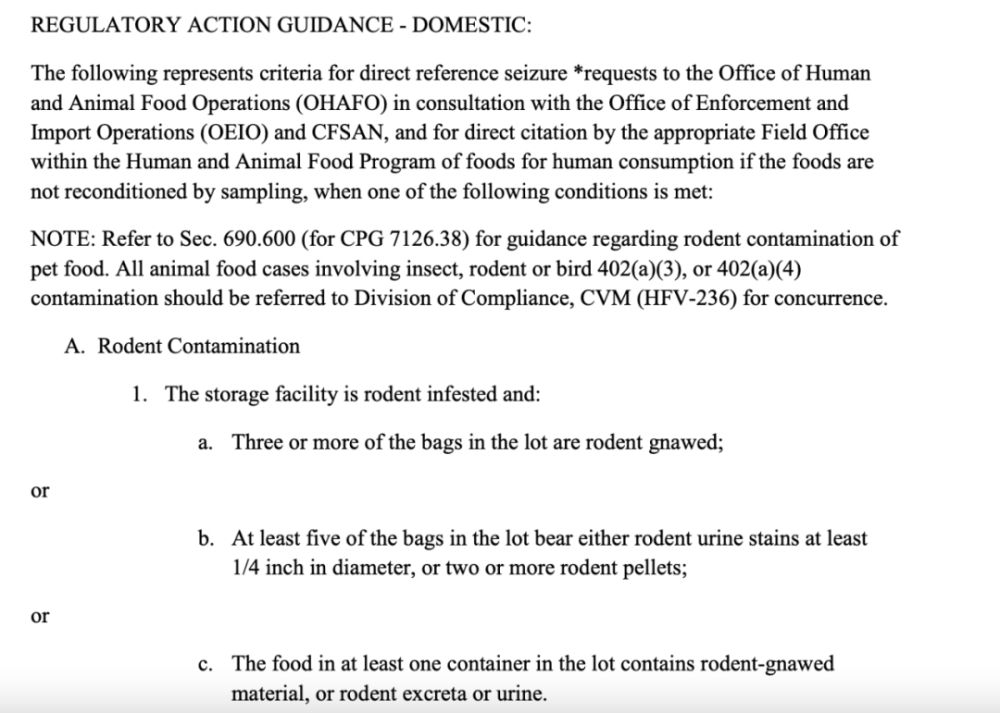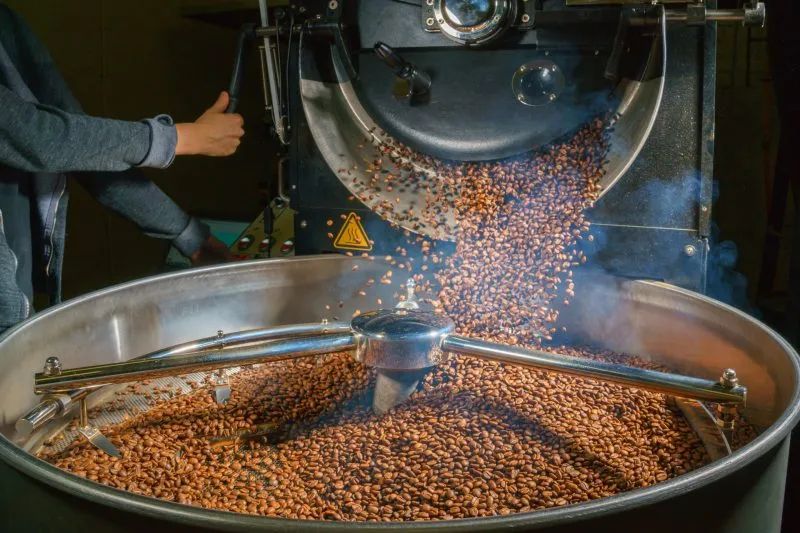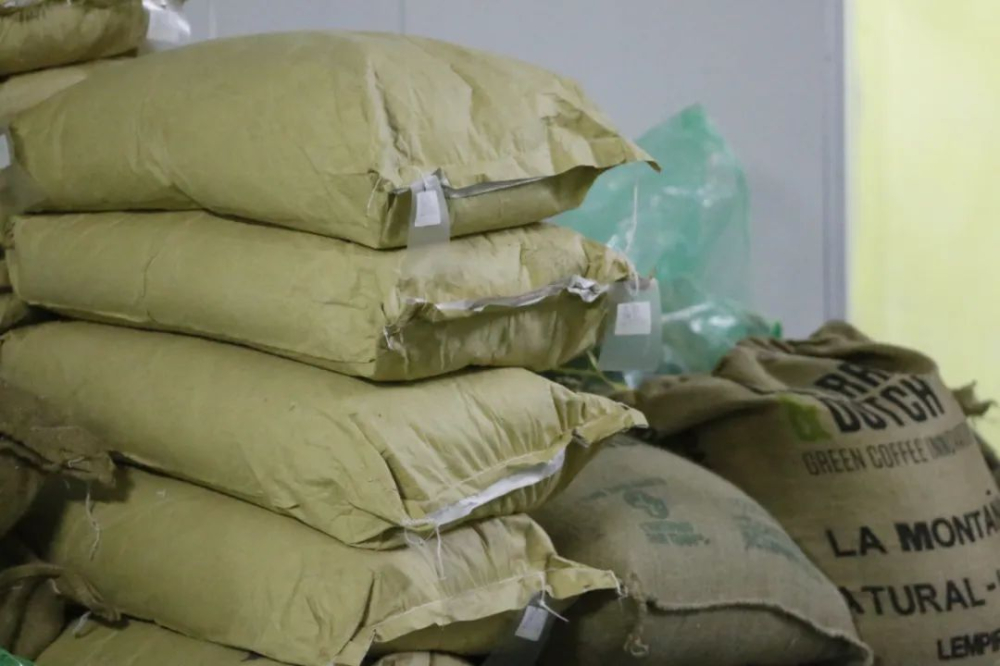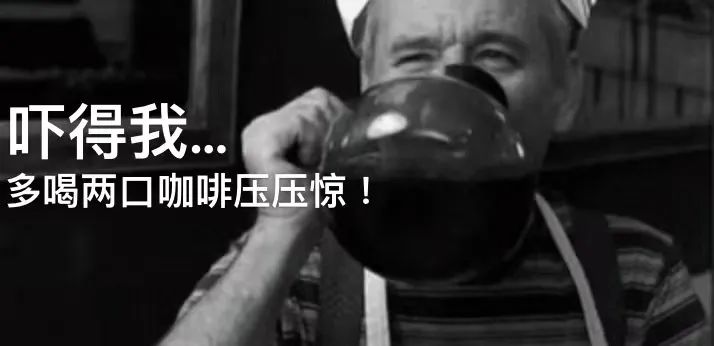Coffee is allowed to contain 10% cockroaches? I believe you, ghost!
In March last year, NHS doctor Karan Raj posted a short video on the TikTok account Dt.Karan saying that most pre-ground coffee sold in supermarkets / stores contained cockroaches (avoiding further reading would cause discomfort, hereinafter referred to as Ah Qiang). Before these coffee beans are ground into powder, a certain proportion of the coffee beans have been contaminated by Ah Qiang and other insects.
At the same time, the video also mentions that usually these insects cannot be completely separated from coffee beans, so they can only be roasted and ground with coffee beans, and most food agency beans allow a certain percentage of insects in the food. And Ah Qiang itself has a high protein content, which will not cause harm to the human body, but those who are allergic to Ah Qiang should stay away from these pre-ground coffee powder.

Shortly after the food release, another TikTok pharmacist user earthpothecary posted a short video saying that most coffee beans are stored in warm and humid conditions, which is Ah Qiang's favorite place, so it is so hard to separate Ah Qiang from coffee beans. So coffee is allowed to contain 10%, including Ah Qiang and other insects. Therefore, when you buy pre-ground coffee in a supermarket / store, it may contain up to 10% of other insect ingredients, including Ah Qiang. Then added, if you want to drink pure black coffee without A Qiang, buy coffee beans, at least you can see if there are bugs in it.
Next, the coffee workshop will sort out how much misleading information these videos have brought to netizens who are watching the videos. First of all, it is about the question that "coffee is allowed to contain 10%, including Ah Qiang and other insects." According to the guidelines issued by the US Food and Drug Administration (FDA), it is impractical to be 100% free of natural harmless substances for crop harvesting and processing, and the existence of natural harmless substances (such as insects, eggs, etc.) is inevitable. However, in the relevant chapter on food preservation, it is stipulated that once there is a container with the smallest unit (such as a small box) among the batches of goods, there are 10% of similar objects in the container, then the whole shipment needs to be detained and checked.

Although FDA's Manual of Microanalysis procedures (MPM) mentions that insects and feces are often common foreign bodies in coffee powder and coffee beans, there are also molds, fungi, rodents, cigarette butts, chewing gum, broom stalks and other unexpected things. These things are easy to appear, so they need to be paid special attention to.

For the saying that "it is so hard to separate Ah Qiang from coffee beans" and "these insects cannot be completely separated", coffee beans need to be manually selected before roasting before entering the baking stage, and cannot be completely separated from Ah Qiang. It's not practical. The Federal Food, Drug and Cosmetics Act also requires food manufacturers not to prepare, package or preserve food under unhygienic conditions at any stage of production or distribution. Food manufacturers are also required to comply with regulations and require effective pest control measures in production facilities to eliminate pests such as Ah Qiang. In China, food processing and manufacturing plants with formal production licenses, storage, production, packaging and other production environment must reach a 100% insect-free state. A regular baking factory has the necessary screen windows, eliminate virus pest tools, mouse shields and all the equipment that can stop pests, so it is impossible to have A Qiang, mice, flies and other creatures that can spread disease in the production workshop.

On the other hand, the factory will check the relevant items in the application, renewal, daily inspection and sudden inspection, so whether it is raw coffee beans, roasted coffee beans, or ground coffee powder, there can be no insects, rats, such as Ah Qiang. Therefore, when buying coffee beans and coffee powder, we should recognize the brand stores with formal production qualifications. On the other hand, as practitioners have compliance production qualifications and venues, it can also avoid the emergence of malicious rights protection buyers. As for "most coffee beans are stored in a warm and humid environment", this sentence itself is unreasonable. Whether it is coffee raw beans or coffee cooked beans, the storage environment must not be a wet environment. The storage conditions of raw coffee beans must be controlled in the environment of 20-25 degrees Celsius and 50-65% humidity. In general, the humidity is above 80%. After baking, the storage conditions of coffee beans should be kept in a dry, cool, ventilated and sealed environment. The storage environment temperature is recommended to be about 20 degrees Celsius, but it is not recommended to keep it in the refrigerator. Finally, there is the sentence that "A Qiang has a high protein content and will not cause harm to the human body."... Em... It is said that Ah Qiang is a pest! How can there be no harm?! If you have to pull the kind of special breeding, used for pharmaceutical use for Ah Qiang, it is very far-fetched! At that time, after watching the video at the beginning of the article, the code clerk silently picked up a cup of coffee and drank it without worry.

Related website: https://www.fda.gov/media/72108/downloadhttps://www.fda.gov/food/laboratory-methods-food/macroanalytical-procedures-manual-mpm Photo Source: Internet
Source: Weibo @ internet-garcon-pdf
Professional coffee knowledge exchange more coffee bean information please follow the coffee workshop (Wechat official account cafe_style)
For more boutique coffee beans, please add private Qianjie coffee on Wechat. WeChat account: kaixinguoguo0925
Important Notice :
前街咖啡 FrontStreet Coffee has moved to new addredd:
FrontStreet Coffee Address: 315,Donghua East Road,GuangZhou
Tel:020 38364473
- Prev

What kind of service consciousness should baristas have? Is it hard to be a barista?
"in the past, when I went to a coffee shop, I enjoyed the professional skills and warm service of baristas, but now I have to be careful when I go to a coffee shop, lest the barista will ignore you if he doesn't like it." I don't know when baristas began to become less approachable. At the same time, more and more baristas like it.
- Next

In Guangdong, at the end of the coffee shop is the cold tea shop!
Other people's March, spring blossoms, the climate is pleasant, while Guangdong's March. The scorching sun is high in the sky with a temperature of 30, and Cantonese people in such an environment are generally either "hot and humid" or "hot" or "hot" or "born with oral ulcers", that is. And then there's always something at home.
Related
- Unexpected! Ruixing Telunsu lattes use a smoothie machine to foam milk?!
- % Arabia's first store in Henan opens into the village?! Netizen: Thought it was P's
- Does an authentic standard mocha coffee recipe use chocolate sauce or powder? Mocha Latte/Dirty Coffee/Salty Mocha Coffee Recipe Share!
- What is the difference between Vietnam egg coffee and Norway egg coffee? Hand-brewed single product coffee filter paper filter cloth filter flat solution!
- What is the difference between sun-cured and honey-treated coffee? What are the differences in the flavor characteristics of sun-honey coffee?
- How to make Italian latte! How much milk does a standard latte use/what should the ratio of coffee to milk be?
- How to make butter American/butter latte/butter Dirty coffee? Is hand-brewed coffee good with butter?
- Is Dirty the cold version of Australian White? What is the difference between dirty coffee/decent coffee and Australian white espresso?
- Relationship between brewing time and coffee extraction parameters How to make the brewing time fall to 2 minutes?
- Got entangled?! Lucky opens a new store, Mixue Ice City, and pursues it as a neighbor!

